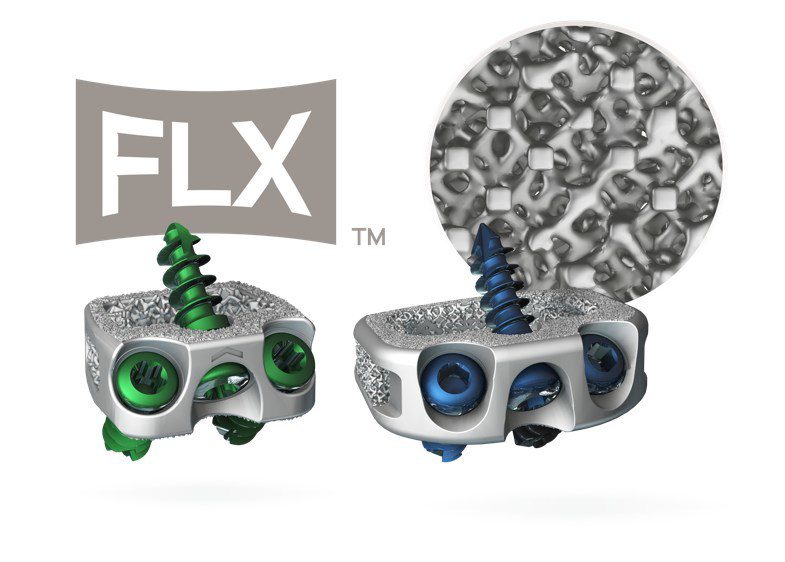Centinel Spine®, LLC, a leading global medical device company addressing cervical and lumbar spinal disease through anterior surgical access, today announced the first international implantation of the 3D-Printed Porous Titanium FLX™ platform. Dr. Alfredo Guiroy and Dr. Jose Ricardo Prina in Argentina were the first surgeons outside the United States to implant the STALIF C FLX™ and STALIF M FLX™ devices.
The FLX platform represents the latest material evolution offered by Centinel Spine. The STALIF C FLX and STALIF M FLX devices are 3D-printed porous titanium Integrated Interbody™ implants that have been engineered to mimic bone. These implants provide equivalent subsidence performance to PEEK; contain a proprietary, interconnected FUSE-THRU™ lattice with a structure and modulus of elasticity similar to bone; and have optimized mechanical, visual, and osteophilic environments that reduce stress shielding, enable fusion assessment, and support bony in-growth, on-growth, and thru-growth.
“The STALIF M FLX cage has a bone contact surface much better and larger than any other PEEK cage of the same size and has a maximum capability of osteointegration with the bone,” said Dr. Prina. “We consider that this works much better for a stand-alone procedure.”
“It is my pleasure to use STALIF®. It’s a very good implant, with a lot of versatility due to different sizes and lordotic options, and titanium has shown to be more friendly for fusion than other PEEK/hybrid combinations,” commented Dr. Guiroy.
Centinel Spine’s CEO, Steve Murray, stated, “We are excited to be able to offer our state-of-the-art FLX technology to our international partners. As a company, we remain dedicated to continued innovation and furthering scientific evidence in advancing spine care. We are proud to be able to make our technology available to even more patients on a global scale.”
STALIF M FLX and STALIF C FLX implants are built upon the proven STALIF design, which has over 30 years of clinical history and has helped many patients regain their lives. STALIF implants provide compressive fixation at the fusion site, pulling the vertebral bodies onto the implant and graft material to enhance opportunities for fusion in line with Wolff’s Law of Bone Healing.
